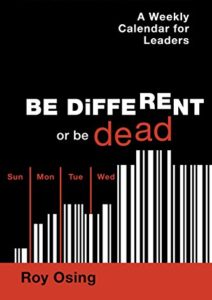How well an organization performs is not governed by the quality of talent at the extremes of the bell curve.
Individual superstars will always make a noticeable contribution; ineffective employees will always drag results down.
When organizations are superstars, it’s due to the performance of the mass of people in the heart of the bell curve; the teams of passionate turned-on employees who relentlessly pursue excellence and who are driven to achieve exceptional results.
“Wonder” sales teams are critical to any organization. Here are 6 steps sales leaders can take to evolve them.
1. Develop a clearly articulated sales plan that links directly to the priorities expressed in the organization’s strategic game plan.
2. Determine a direct connection between the sales plan to each sales rep in terms of what they need to do in order to deliver the results expected in the sales plan.
If each member of the sales team is singing from the same song sheet, an amazing performance is achieved harmoniously.
3. Develop a sales set of values that describes how people are expected to interact with one another.
Values are driven by strategic objectives and are a critical declaration of how people together must behave to achieve common goals.
Ensure “spirited teamwork” is included as a core principle.
4. Set shared objectives that are common to every member of the team; if the team wins, everyone wins and missed goals punishes all team members. Include shared objectives in each team member’s bonus compensation plan.
If remuneration isn’t driven by achieving a shared purpose, effective teamwork doesn’t show up.
5. Live a “servant leadership” ethic that guides how the team boss manages the team. To consistently perform at a high level, teams need leaders who are there to help them; to remove obstacles that block getting the job done.
Team leaders should be measured by how effectively they carry out the serving mandate. “How can I help?” replaces “Do this!”.
6. “Be” with them. This is a less structured prerequisite to building awesomeness in teams; it relates to how the leader “feels” about the members of the team. The emotional connection the leader has with each and everyone who battles everyday to deliver results.
Remarkable teams have leaders who care about them as people – human beings – and do everything in their power to treat them with respect.
They know and appreciate their personal life challenges, for example, and are often called upon to provide guidance and advice on personal matters. They are trusted that much.
The sales leader’s role is not to achieve short term sales results but rather to nurture their team to do so consistently over the long term.
As a sales leader, how often do you wear these 6 hats?


















Comments